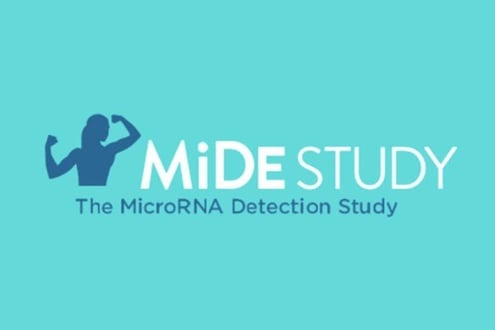Hereditary Ovarian Cancer

Frequently Asked Questions about Hereditary Ovarian, and Primary Peritoneal Cancer
The term ovarian cancer actually refers to three related types of cancer that are similar in risk, detection and treatment: ovarian, and primary peritoneal cancer. Below we have answers to some of the most frequent asked questions about genetics, screening, prevention and treatment for these cancers. You can read more detailed information about risk, risk-management and treatment options here.
What is the difference between , ovarian and primary peritoneal cancer?
- Ovarian cancer starts in the ovaries, the part of the female reproductive system where eggs are formed. The ovaries also produce the female sex hormones and progesterone.
- cancer starts in the tubes that connect the ovaries to the uterus. Experts now believe that most of the cancers called ovarian cancer actually begin in the .
- Primary peritoneal cancer begins in the lining of the abdominal cavity known as the peritoneum. Although rare, primary peritoneal cancer can occur even if people who have had their ovaries and removed.
Who is at risk for ovarian cancer?
All people assigned female at birth are at risk for ovarian cancer. A person's risk varies based on:
- age
- presence of an
- personal and family history of cancer
- personal history of endometriosis
- reproductive history
- exposure to hormones
- obesity
- other risk factors
How common is ovarian cancer?
In the general population, the risk for ovarian cancer is very low, about 1.1%. This means that 1 out of every 91 women will develop ovarian cancer in their lifetime.
For people with an increased risk for ovarian cancer, the lifetime risk may be much higher.
Get notified when updated information becomes available.
SIGN UP FOR CONTENT UPDATESIs ovarian cancer genetic?
All ovarian cancers are caused by damage to genes in the cells of the ovaries, or peritoneum. Most of this damage happens during the course of a person's lifetime.
Some ovarian cancers are hereditary. These are caused by inherited mutations that are present at birth and can be passed on from parents to their children. Genetic counseling and testing can help people learn if they are at high risk.
How can I learn if the ovarian cancer in my family is hereditary?
Genetic testing can help people learn if the cancer in their family is hereditary. People with a diagnosis or family history of ovarian cancer should speak with a genetics expert about genetic testing for risk. You can read more about ovarian cancer genetic testing here.
Which genes are linked to hereditary ovarian cancer?
Inherited mutations in the genes listed below are linked to an increased risk for ovarian cancer.
|
Genes Linked to Ovarian, and Primary Peritoneal Cancer |
|
*More research is needed to confirm a link between an in and increased risk for ovarian cancer. **SMARCA4 mutations are associated with a type of ovarian cancer known as a small cell carcinoma of the ovary (hypercalcemic type), also known as SCCOHT. ***STK11 mutations are associated with a type of tumor called sex cord tumors with annular tubules, also known as SCTAT. |
How common is hereditary ovarian cancer?
About 15-20% of ovarian cancers are caused by inherited mutations that can be passed on from parents to their childrens.
What is the best way to screen for ovarian cancer?
There are no reliable tests for early detection of ovarian, or primary peritoneal cancer. Even in high-risk people, screening for these cancers has not been shown to detect cancer early or improve outcomes. For this reason, most experts do not recommend regular screening for ovarian cancer in the absence of symptoms.
For people who decide they want to have screening, it may include a combination of the following:
- A pelvic exam is an internal vaginal exam by a health care provider to look and feel for abnormalities of the reproductive system.
- Transvaginal involves an device inserted into the vagina, which uses sound waves to look for any abnormal changes in the ovary.
- CA125 is a protein in the blood that is sometimes elevated in women with ovarian cancer.
If you are at high risk for these cancers, it is important to discuss the benefits and limitations of ovarian cancer screening with your doctor.
What are the signs of ovarian cancer?
All people at high risk for ovarian cancer should be educated on the possible signs. You should report any of the following symptoms to your doctor if they are persistent and a change from normal:
- bloating
- pelvic or abdominal pain
- difficulty eating or feeling full quickly
- urinary symptoms (urgency or frequency)
Importantly, these symptoms do not mean you definitely have cancer, other conditions can cause the signs listed above.
What can people do to manage their ovarian cancer risk?
There are two main ways for people to lower their risk for ovarian cancer:
- medications to lower risk
- risk-reducing surgery
Each of these options comes with benefits, costs and risks. Expert guidelines for hereditary ovarian cancer risk management depend on your gene mutation and level of risk.
What else affects ovarian cancer risk?
The following factors may lower the risk for these cancers:
More research is needed to understand whether other factors may influence risk in people with inherited mutations.
How are hereditary ovarian cancers different?
Hereditary ovarian cancers are more likely to occur at a young age. Some hereditary ovarian cancers may respond better to certain types of treatment. You can learn more about treatment options for hereditary ovarian cancers here.
Prevention
National expert guidelines for ovarian cancer prevention vary based on gene mutation and other factors that affect risk.
Treatment
People diagnosed with ovarian cancer may have different treatment options based on stage, subtype and results of genetic and biomarker testing.
Genetic Testing
National guidelines outline who should consider genetic counseling and testing for an inherited mutation linked to ovarian cancer.

